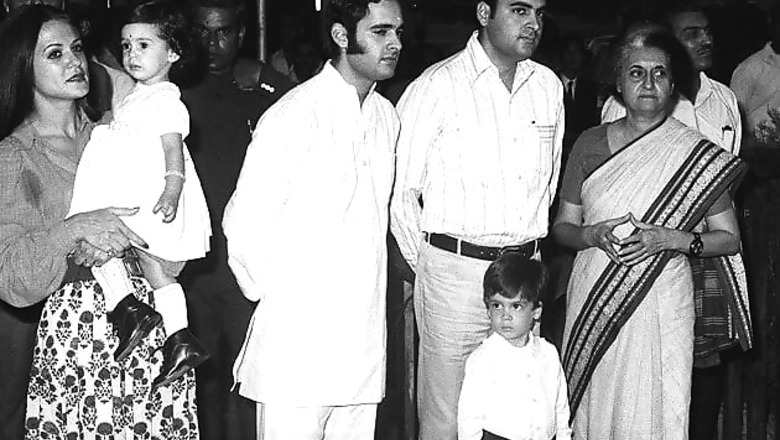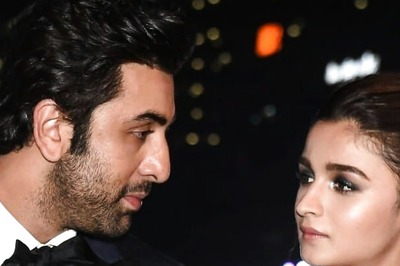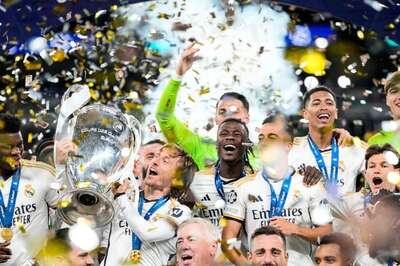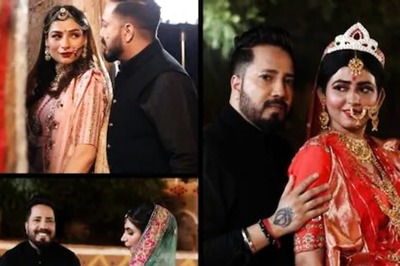
views
New Delhi: The annual rituals marking the birthday of Rahul Gandhi, the scion of the Nehru-Gandhi dynasty, were rather subdued this year. Gandhi had spent the greater part of 2011 touring Uttar Pradesh, trying to garner support for Congress and extending the party's rural base.
At 42, Gandhi is projected as the young face of Congress, and one who will, in time, take over the reins of the party from his Italian-born mother Sonia. Anointed as the 'Prime Minister-in-waiting' by the media, Gandhi is expected to eventually become prime minister if Congress and its allies retained power in national elections due in 2014.
Rahul comes from an illustrious family of freedom fighters and politicians that have over generations passed on the baton of power from father to son. Son of Sonia and Rajiv Gandhi, grandson of Indira Gandhi and great-grandson of Jawaharlal Nehru, India's first prime minister, Rahul Gandhi boasts of ancestors who shaped a nation's destiny in their 40s, achieving towering heights.
Rahul's failure to deliver for the party in Uttar Pradesh in the Assembly elections has raised questions about his capabilities ahead of 2014 elections. BJP vice president Mukhtar Abbas Naqvi had once mocked his political track record, saying that in nearly eight years as a lawmaker Rahul's most notable contribution in the Lok Sabha was a two-page statement on corruption that he read out.
Rahul did mature as a public speaker on the campaign trail, building the confidence to deliver lengthy and forceful off-the-cuff speeches. He looked increasingly comfortable in the dusty plains of Uttar Pradesh, addressing tens of thousands in the colloquial Hindi of the region, and clambering down from rickety stages to mix with the people. Here is a brief summary of the political lives of the other members of the Nehru-Gandhi family in their 40s.
Motilal Nehru: The patriarch of the Nehru dynasty and the father of Jawaharlal Nehru served as the Congress President twice. A lawyer of repute and an active member of the freedom movement, Motilal at the age of 48 appear in the Privy Council of Great Britain, a rare honour at that time.
Jawaharlal Nehru: In 1929, at the age of 40, Nehru had already emerged as the successor to Mahatma Gandhi and the political face of the Indian Freedom Movement. In the same year, he introduced a resolution demanding complete national independence, which, after being opposed by Gandhi, was redrafted into one which asked the British to grant dominion status to India within two years. During the Lahore session in December, 1929, Nehru assumed the presidency of the Congress party. It was at this time that he introduced a successful resolution calling for complete independence. He hoisted the tricolour upon the banks of the Ravi in Lahore and read out a pledge of independence.
He was arrested in 1930 after addressing a huge gathering and charged with the breach of the salt law and sentenced to six months in jail. He is credited with breathing new life into the civil disobedience movement.
Feroze Gandhi: At 40, Feroze Gandhi, the grandfather of Rahul Gandhi, was the member of the provincial parliament and won independent India's first general elections in 1952 from the Rae Bareli constituency in Uttar Pradesh.
Indira Gandhi: Rahul's illustrious grandmother assisted her Prime Minister father Jawaharlal Nehru throughout her 40s. At the age of 47 she was appointed a member of the Rajya Sabha and became a member of Lal Bahadur Shastri's cabinet as Minister of Information and Broadcasting.
Rajiv Gandhi: Rahul Gandhi's father Rajiv became the youngest Prime Minister of India when he took office at the age of 40. (With additional inputs from Reuters and date references from Wikipedia)


















Comments
0 comment